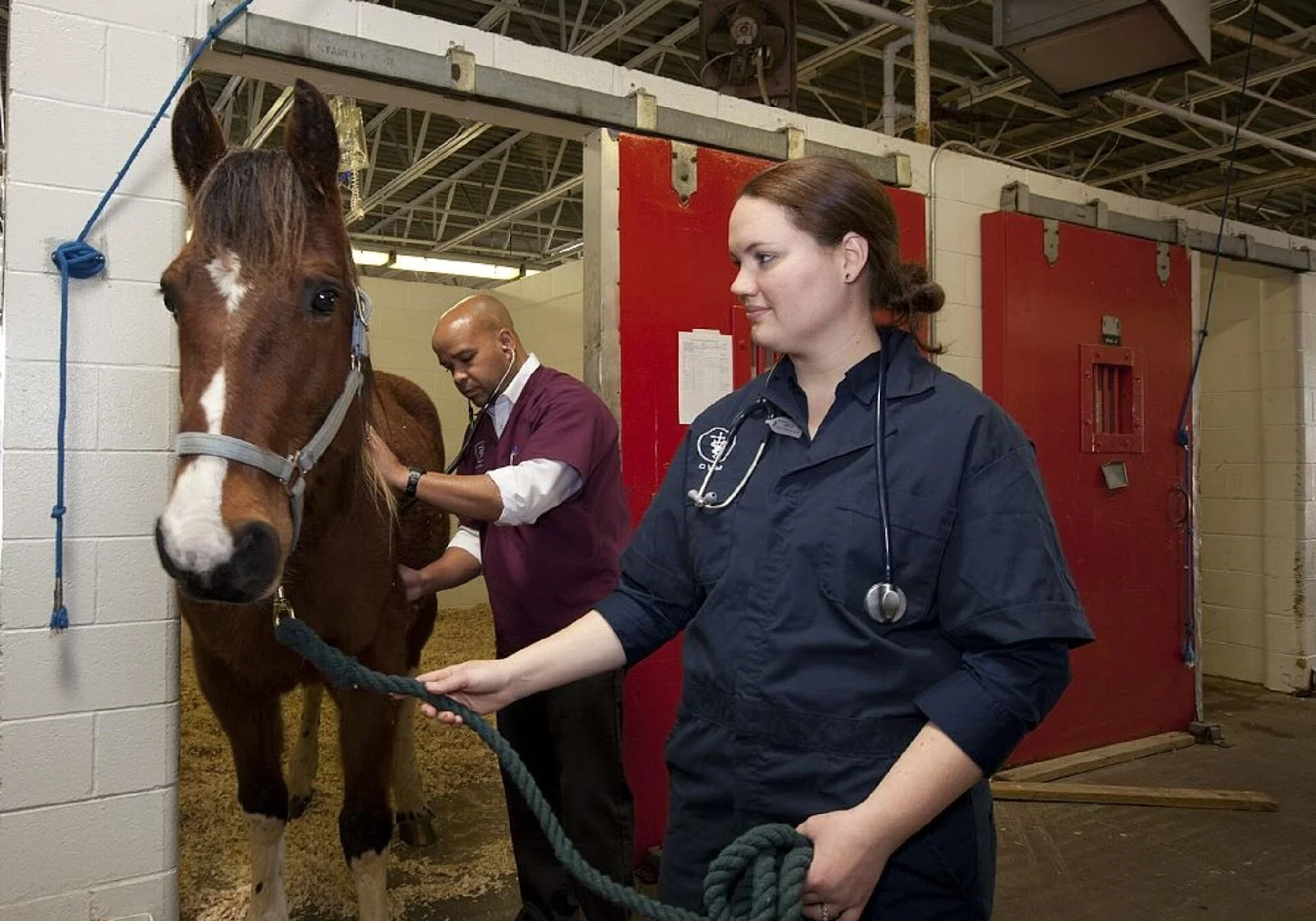EDUCATION
How Online Opportunities Are Shaping the Future of Learning and Careers

Online opportunities have drastically revolutionized how we view learning and career development. In a connected world, digital platforms and virtual environments are more than supplements to tradition; they are transformative forces in knowledge acquisition and professional growth. Such changes are now allowing people all over the world to have access to education and career prospects that once were out of their grasp.
The Shift to Digital Learning
Digitalization has greatly reduced most of the barriers to education for learners of all ages. Online courses, virtual classrooms, and interactive learning modules have made education more accessible and flexible. Be it the high school student exploring newer interests, the working professional looking to upskill, or a retiree pursuing a lifelong passion, online learning platforms make sure your needs are taken care of.
Perhaps one of the most important features that digital learning offers is its flexibility. Learners are allowed to study at their pace, revisit areas of challenge, and make their education customizable to their goals. These are things that are very nearly impossible to achieve in the physical classroom.
Besides, online platforms often give a global outlook: for example, the chance to take courses in elite universities without moving. The appearance of massive open online courses and websites such as Coursera, edX, and Udemy has made world-class education accessible to anyone who has access to the internet. Such democratization of knowledge empowers people to widen their horizons and acquire skills that once were accessible only to the geographically and financially endowed.
Career Growth in the Digital Age
The digital transformation isn’t confined to education; it’s also reshaping the workforce. With the rise of remote work and online professional opportunities, individuals can now build fulfilling careers without being tethered to a physical office. The possibility of working from home has opened up possibilities for people hailing from diverse backgrounds, including those living in rural areas or caring for dependents at home.
From job boards to freelancing sites and virtual networking events, it has never been simpler to get in touch with potential employers and clients. These tools allow individuals to showcase their skills, build portfolios, and establish professional relationships on a global scale. This shift has been particularly transformative in fields such as software development, graphic design, and content creation.
Online platforms create the avenue for career changing, too. Professionals will have the chance to start over with new qualifications or certificates online, enabling their entry into other high-paying fields. For instance, some coding boot camps and courses in data science have availed entry into tech; virtual certifications in project management and digital marketing have opened floodgates to dynamic new roles.
The Intersection of Learning and Careers
It means education and career advancement have been decoupled; in large part, online opportunities today interconnect them deeply. Many employers now see the benefits of lifelong learning, wanting job applicants who keep adding skills continuously. In turn, the online platforms have stepped up to meet this demand through micro-credentials, badges, and specialized certifications tailored to directly meet the needs of specific industries.
Also, remote jobs in education have bridged the gap between learning and employment. The future of digital learning depends greatly on the role of online educators, instructional designers, and education technologists. By leveraging their expertise, these professionals contribute to a system that emphasizes accessibility and innovation. For instance, remote jobs in education allow passionate individuals to teach, mentor, or design curriculum from anywhere in the world, aligning their work with the needs of a digital-first society.
Such synergy between education and careers leads to a culture of growth. Professionals are called to relevance in continuously updating their skills, while the learners appreciate the real paths in which they can apply knowledge. This dual focus will help keep education practical and make career development look ahead.
Challenges and Opportunities
While the rise of online opportunities has created numerous benefits, it’s not without challenges. Digital inequity remains a significant concern: too many people still lack reliable access to high-speed internet or the devices necessary to participate in online learning or remote work. Addressing this digital divide is crucial for the advantages of online opportunities to be equitably distributed.
This is also coupled with the growth in online courses and certifications, raising several questions regarding quality control. Not all programs are created equal, and sorting through the good from the bad can be overwhelming for the learner. Transparency, accreditation, and third-party reviews are critical in helping any individual make an informed decision.
The outlook remains bright despite these challenges. Innovations in the realm of AR, VR, and AI are coming in that will further develop online learning and professional development. Just imagine virtual field trips, AI-driven career coaching, or personalized learning pathways curated according to a person’s strengths and aspirations. The technologies promise to make the opportunities even more appealing, effective, and accessible online.
Embracing the Future
The coming together of online learning and career development shows how technology has really transformed lives. Navigating this digital landscape requires an adapting mindset and lifelong learning. Whether you’re exploring new fields, upskilling to stay competitive, or pursuing a passion project, online opportunities provide the tools to turn aspirations into reality.
In using these resources, individuals break out of traditional constraints to make their own ways. It could be anything-from gaining qualifications to launching a career in education from the comfort of one’s home. The possibilities are endless, and the key is knowing how to unlock these tools to pursue previously unimaginable opportunities.
Online opportunities, in a world where the lines between education and work continue to be blurred, are not only shaping but defining the future. It’s not a question of whether these changes will continue; it is how we will harness them to build a more inclusive, innovative, and empowered society.
EDUCATION
Unlocking Success: The Complete Guide to Accounts Assistant Training

Introduction
Embarking on a career journey in finance or accounting requires more than just ambition—it necessitates a solid foundation in Accounts Assistant Training. This comprehensive guide aims to illuminate the path toward becoming a proficient accounts assistant, encompassing the essential skills, qualifications, and training opportunities necessary to thrive in this dynamic field.
Deciphering the Role of an Accounts Assistant
At the heart of any finance department lies the invaluable contributions of accounts assistants. These individuals serve as the backbone, diligently handling a myriad of accounting tasks ranging from bookkeeping to financial analysis. Their responsibilities extend to ensuring the accuracy of financial records, adhering to regulatory standards, and supporting decision-making processes within the organization.
The Imperative of Accounts Assistant Training
The significance of Accounts Assistant Training cannot be overstated. It serves as the catalyst for individuals to acquire the requisite knowledge, skills, and competencies essential for success in their roles. Through meticulously designed training programs, aspiring accounts assistants gain proficiency in accounting principles, financial analysis, taxation, and software utilization, setting the stage for a fulfilling career journey.
Essential Skills for Accounts Assistant Training
1. Mastery of Accounting Principles
A solid grasp of fundamental accounting principles forms the bedrock of an accounts assistant’s skill set. Proficiency in double-entry bookkeeping, accrual accounting, and financial statement preparation empowers individuals to interpret financial data accurately and derive meaningful insights from financial reports.
2. Attention to Detail
Precision is paramount in the realm of accounts assistants, where meticulous attention to detail ensures the integrity of financial records and compliance with regulatory standards. By maintaining a keen eye for accuracy, accounts assistants mitigate the risk of errors and discrepancies, safeguarding the organization’s financial integrity.
3. Numerical Proficiency
Adeptness in numerical analysis is indispensable for accounts assistants, who must navigate intricate calculations, analyze financial data, and reconcile accounts with precision. Their proficiency in numerical manipulation enables them to uncover trends, identify anomalies, and facilitate informed decision-making processes.
4. Effective Communication
Clear and concise communication is a hallmark of proficient accounts assistants. Whether liaising with colleagues, stakeholders, or clients, the ability to convey complex financial information in an accessible manner fosters collaboration and enhances organizational transparency.
5. Analytical Acumen
Analytical prowess distinguishes exceptional accounts assistants from their peers. Armed with the ability to dissect financial data, discern patterns, and extrapolate insights, these individuals play a pivotal role in informing strategic decision-making and driving organizational growth.
Qualifications for Accounts Assistant Training
1. Educational Attainment
While a bachelor’s degree in accounting or finance is often preferred, accounts assistant positions may also be accessible to candidates with relevant associate degrees or certifications. Formal education equips individuals with foundational knowledge and prepares them for the rigors of the accounting profession.
2. Professional Certifications
Earning professional certifications, such as Certified Bookkeeper (CB) or Certified Accounts Assistant (CAA), serves as a testament to an individual’s expertise and commitment to professional development. These credentials validate proficiency in accounting principles and enhance one’s credibility in the eyes of employers.
3. Practical Experience
Hands-on experience in accounting or finance-related roles provides invaluable insights and complements theoretical knowledge acquired through formal education. Previous exposure to real-world scenarios equips individuals with the practical skills and problem-solving abilities essential for success as accounts assistants.
Training Opportunities for Aspiring Accounts Assistants
1. On-the-Job Training
Many organizations offer on-the-job training programs tailored to the specific needs of accounts assistants. These initiatives provide invaluable exposure to organizational processes, procedures, and software applications, facilitating a seamless transition into the role.
2. Professional Development Initiatives
Professional development programs, including seminars, workshops, and conferences, offer accounts assistants opportunities to expand their knowledge base, network with industry professionals, and stay abreast of emerging trends. These initiatives foster continuous learning and support career advancement aspirations.
3. Online Learning Platforms
The advent of online learning platforms has revolutionized the landscape of professional development, affording accounts assistants the flexibility to pursue training courses at their own pace and convenience. From accounting software tutorials to advanced financial analysis modules, these platforms cater to diverse learning needs.
Conclusion
Conclusion In conclusion, Accounts Assistant Training serves as the cornerstone of success for individuals embarking on a career journey in finance or accounting. By honing essential skills, acquiring relevant qualifications, and seizing training opportunities, aspiring accounts assistants can position themselves for a rewarding and fulfilling career trajectory. Through continuous learning and professional development, they emerge as indispensable assets to their organizations, driving financial excellence and contributing to overall organizational success.
EDUCATION
Unlocking the Magic of Accounts Assistant Training: Your Guide to Success

Hello there, young learners! Today, we’re going to embark on an exciting journey into the world of becoming an Accounts Assistant. But wait, what exactly is an Accounts Assistant, you ask? Let’s find out together!
What is an Accounts Assistant?
Imagine you have a big jar filled with colorful candies. Now, someone needs to keep track of how many candies are in the jar, what colors they are, and when more candies need to be added. An Accounts Assistant is like the candy keeper! They help businesses keep track of their money, how much they spend, and how much they earn.
Understanding the Basics
Accounts Assistants work with numbers, just like how you count your toys or candies. They use special tools like computers and spreadsheets to organize all the money stuff for a company.
Why Accounts Assistant Training Matters
Now that we know what an Accounts Assistant does, let’s talk about why learning to be one is super important!
Setting the Stage for Success
Just like when you’re learning to ride a bike, you need to practice and learn the rules. Accounts Assistant training teaches you everything you need to know to be great at your job!
Where to Find Accounts Assistant Training
So, where can you learn to be an Accounts Assistant? Let’s explore our options!
Exploring Your Options
You can find training at schools, online, or sometimes even at special places where they teach job skills. It’s like picking your favorite flavor of ice cream – you get to choose what works best for you!
What Skills Will You Learn?
Being an Accounts Assistant requires some special skills. Let’s talk about what you’ll learn!
Sharpening Your Toolkit
You’ll learn how to use computers, math skills, and even how to communicate well with others. It’s like becoming a superhero with special powers!
How Long Does Training Take?
Training to be an Accounts Assistant takes time, just like learning to read or write.
Patience is Key
Some training programs are short, while others might take a bit longer. But remember, good things come to those who wait!
The Benefits of Becoming an Accounts Assistant
Becoming an Accounts Assistant comes with lots of cool perks! Let’s check them out!
Opening Doors to Opportunity
Being an Accounts Assistant can lead to all sorts of exciting job opportunities. It’s like having a treasure map to find all the hidden treasures of the working world!
What to Expect During Training
Training might seem a bit tricky at first, but don’t worry – we’ve got some tips to help you through it!
Navigating the Learning Curve
You might make mistakes along the way, but that’s okay! Learning is all about trying your best and never giving up.
Tips for Excelling in Your Training
Ready to knock your training out of the park? Here are some tips to help you shine!
Maximizing Your Potential
Stay curious, ask questions, and always do your best. You’ve got this!
Challenges You Might Encounter
Sometimes, training can be tough, but remember – every challenge is an opportunity to grow!
Facing the Hurdles Head-On
If you ever feel stuck, don’t be afraid to ask for help. You’re not alone on this journey!
Celebrating Your Progress
Hooray! You’ve made it through training – now it’s time to celebrate your hard work!
Embracing Your Achievements
Take a moment to pat yourself on the back. You’ve accomplished something amazing!
Next Steps After Training
Now that you’ve completed your training, what’s next? Let’s talk about your exciting future!
Charting Your Career Path
You can use your new skills to land a job as an Accounts Assistant or even explore other career paths. The sky’s the limit!
Real-Life Success Stories
Feeling inspired? Let’s hear from some real Accounts Assistants who have found success!
Drawing Inspiration from Others
Listening to their stories can show you that anything is possible with hard work and dedication.
FAQs About Accounts Assistant Training
Addressing Your Concerns
Q: How long does it take to become an Accounts Assistant?
A: It can vary, but most training programs last anywhere from a few months to a year.
Q: Do I need to be good at math to be an Accounts Assistant?
A: Having basic math skills is important, but you’ll also learn everything you need to know during your training.
Q: Can I become an Accounts Assistant if I don’t have any experience?
A: Absolutely! Training programs are designed to teach you everything from the ground up.
Q: Will I need to take a test at the end of my training?
A: Some programs may have a test or assessment, but don’t worry – your teachers will help you prepare!
Q: What if I’m still not sure if being an Accounts Assistant is right for me?
A: That’s okay! You can always talk to a career counselor or someone who knows about different job options to help you decide.
Now that you know all about becoming an Accounts Assistant, are you ready to embark on this exciting adventure? Remember, with hard work and determination, you can achieve anything you set your mind to! So go ahead, chase your dreams, and unleash the magic within you! 🌟
EDUCATION
The Top Programs for Equine-Assisted Therapy Certification Around the World

Do you relax when you see a horse’s beauty and grace? There’s a fantastic reason you’re not alone! Equine-assisted therapy is a powerful way to heal and grow as a person that is becoming more and more famous around the world.
The special bond between people and horses is used in this treatment to improve mental, social, and physical health. Want to help other people have life-changing moments with these amazing animals?
Get ready to learn about the best Equine-Assisted Therapy Certification schools in the world. This trip is waiting for you whether you’re an experienced horse rider or just love the feel of a horse’s soft nose.
EAGALA (Equine Assisted Growth and Learning Association)
It is important to know about EAGALA if you want to use horses for therapy or just to grow as a person. They teach a lot of different things in their license program, from theory to practical experience and useful skills. People from all over the world can get the equine therapy certification, but only after a lot of training, which includes classes, group activities, and practicing with customers while being watched.
PATH International (Professional Association of Therapeutic Horsemanship)
If you work with horses as a job, PATH International has different levels of licenses for you to get, from Registered Instructor to Advanced Instructor. They also offer equine therapy training for working with soldiers and disabled people, among other groups. This is the biggest company in its field, and it has more than 870 centers all over the world.
Eponaquest
A one-of-a-kind way to use horses to help people heal is the Eponaquest Apprenticeship Program. It combines the old ways of riding horses with new ways to learn and grow as a person. The tool can be used in the US, Canada, Europe, Australia, and many other places.
FEEL (Facilitated Equine Experiential Learning)
People can get their license from FEEL on three levels. The levels teach people how to be good trainers so they can work with both horses and people.
They also have diplomas that teach you how to work with couples, families, and other groups. FEEL can learn in North America, Europe, and the United States.
Gestalt Equine Institute of the Rockies
A full training program is available at the Gestalt Equine Institute of the Rockies. It combines activities with horses and the ideas of Gestalt therapy.
People can go to school and learn both online and in person. They can also do work experience with real people. The Equine Assisted Growth and Learning Association (EAGALA) will certify people who finish this program.
For those specifically interested in youth development and support, it’s beneficial to check some equine-assisted therapy for teens. These equine therapy programs are tailored to address the unique challenges faced by adolescents, utilizing the therapeutic power of horses to foster self-awareness, confidence, and emotional healing.
Begin Your Journey with Equine-Assisted Therapy Certification Today!
You can get certified in equine-assisted therapy in a number of different ways around the world, as you can see. It is important to study and find a school that fits your values and goals because each one has a different approach and curriculum.
Don’t wait any longer to start this path that will change and please you. Getting equine-assisted therapy certification will not only change other people’s lives, but it will also help you connect more deeply with these amazing animals and with yourself.
Did this article help you? Don’t stress, we have more! Feel free to look around our website to find more helpful and fun pieces.

 ENTERTAINMENT4 days ago
ENTERTAINMENT4 days agoExploring the Kristen Archives: A Treasure Trove of Erotica and More

 ENTERTAINMENT1 day ago
ENTERTAINMENT1 day agoKiss KH: The Streaming Platform Redefining Digital Engagement and Cultural Currents

 TECHNOLOGY4 months ago
TECHNOLOGY4 months agoBlog Arcy Art: Where Architecture Meets Art

 LIFESTYLE4 months ago
LIFESTYLE4 months agoThe Disciplinary Wives Club: Spanking for Love, Not Punishment

 EDUCATION1 day ago
EDUCATION1 day agoLingrohub Platform: A Complete Student Access Guide

 TECHNOLOGY1 day ago
TECHNOLOGY1 day agoCasibom: The Digital Alchemy Reshaping Systems, Society, and Self

 LIFESTYLE4 days ago
LIFESTYLE4 days agoWho Is Sandra Orlow?

 TECHNOLOGY1 day ago
TECHNOLOGY1 day agoSecuring Your Online Presence: The Ultimate Guide to Buying an SSL Certificate










